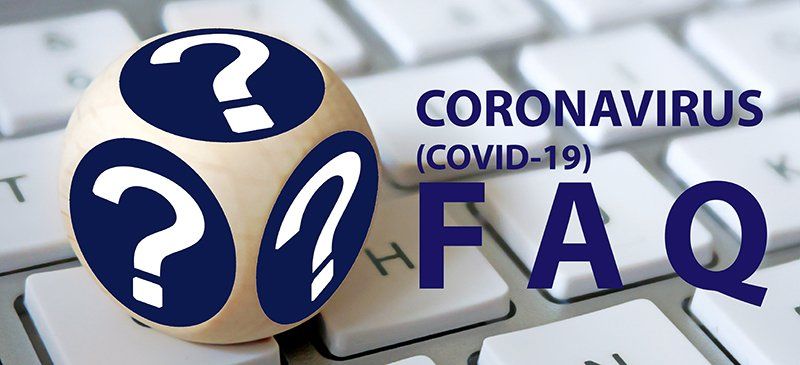Find answers below to frequently asked questions to help provide guidance to eye care patients during COVID-19 .
Why has my doctor of optometry's office visitation procedures changed for eye care?
The Centers for Disease Control and Prevention (CDC) and the Centers for Medicare Services (CMS) have strongly advised that healthcare facilities and clinicians nationwide, including doctors of optometry, restrict their in-person visits and procedures to urgent and emergency patients only for the next several weeks. In addition, all routine eye care visits should be postponed to a later date. Essential eye health and vision care may be necessary, which can be determined on an individual basis by consulting with your doctor. These measures are in place to not only keep you safe, but also to combat further community spread and a wider outbreak of COVID-19.
Are there precautions in place if I do have to have an in-person visit?
If you do require an in-person visit, Dr. Herrold and her essential professional staff are ensuring that all fully appropriate care preparation guidelines and requirements are strictly observed, including following the CDC Guidance for healthcare facilities. This may involve practicing social distancing, having patients fill out a COVID-19 questionnaire and wearing PPEs before arriving to or entering the office and ensuring that the office is routinely and meticulously cleaned and disinfected.
Is it safe to wear contact lenses during the coronavirus pandemic?
According to the CDC, there is currently no evidence to suggest contact lens wearers are more at risk for acquiring COVID-19 than eyeglass wearers. People who are healthy can continue to wear and care for their contact lenses as prescribed by their eye care professional. The AOA recommends the following tips to help ensure proper wear and care for contact lenses:
- Always practice good hygiene when handling lenses. It has been noted that contact lens wearers touch their faces and eyes when inserting and removing lenses. Touching your face and eyes can spread germs.
- Exercise proper hand washing. When using contact lenses or spectacles, one should wash their hands carefully and thoroughly with soap and water often for at least 20 seconds, followed by hand drying with unused paper towels. This should occur before every contact lens insertion and removal. People should avoid touching their face, including their eyes, nose and mouth, with unwashed hands.
- Disinfect contact lenses. Contact lens wearers should either dispose of their daily disposable lenses each evening, or regularly disinfect non-disposable lenses according to instructions from the manufacturer and one's doctor of optometry.
- Discontinue lens wear if sick. Consistent with recommendations for other types of illness, those who feel ill with cold or flu-like symptoms should cease contact lens wear.
Coronavirus & eye healt
How does coronavirus spread?
Coronavirus disease 2019 (COVID-19) is a novel (new) disease meaning there is no immunity to COVID-19. Health and medical experts are still learning how it spreads, the severity of illness it causes and to what extent it may continue to spread in the United States. There is currently no vaccine to prevent COVID-19. According to the CDC, the virus is thought to spread mainly from person to person, particularly between people who are in close contact with one another (within about 6 feet). It can also spread from contact with contaminated surfaces or objects that have the virus on it by touching the surface and then touching your mouth, nose or eyes.
Can wearing glasses help protect my eyes from exposure?
Standard glasses have not been proven to offer protection against COVID-19 or other viral transmissions. Safety glasses offer front and side protection and safety goggles offer splash protection that are helpful to protect against COVID-19.
Is conjunctivitis (pink eye) a symptom of coronavirus?
Conjunctivitis can be a sign of COVID-19. Additionally, COVID-19 may also present with other ocular signs and symptoms such as extreme light sensitivity, irritation and watery discharge. These are self-limiting but may require supportive care. If you have persistent red eyes,
contact Dr. Herrold (or your local doctor of optometry's office) for accurate eye health guidance.
Can the virus be spread through tears?
There is conflicting information regarding the expression of the virus in tears. However, it is clear in multiple medical reports from the epicenter of the breakout in Wuhan (Hubei Province), China where the virus originated, that in addition to the respiratory transmission potential, COVID-19 can be found in the tears and conjunctiva of patients that are positive for the virus with or without obvious conjunctivitis. In addition, it was reported while there is a low prevalence of COVID-19 in tears, it is possible to transmit via the tears.

